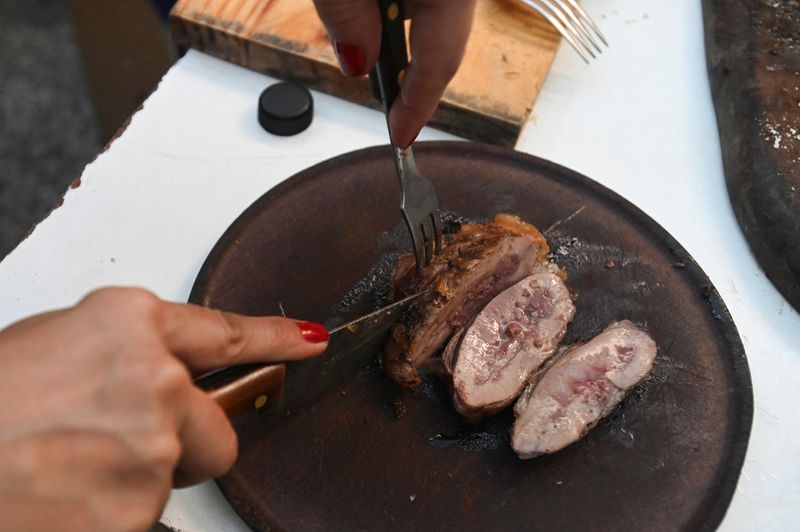BUENOS AIRES (Reuters) - Beef-loving Argentines are cutting back on their steaks as the country's economy slumps, meaning cattle consumption will likely hit a record low this year, a market report published on Friday showed.
Argentina's beef consumption in 2024 is expected to total around 44.8 kg (98.77 lb), the lowest since record-keeping began in 1914, said the Rosario exchange, which publishes market updates for grains and livestock. The historic average is nearly 73 kg.
The South American nation's economy has been hit hard by triple-digit inflation, a recession and rising poverty and unemployment.
Libertarian President Javier Milei, who took office in December, has rolled out austerity measures to reign in government spending. He also ended the previous government's freeze on beef prices.
Argentina, famed for its beef-eating culture, is dotted with steakhouses, cattle ranches and asado barbecues.
Longer-term trends show the population is increasingly turning to cheaper alternatives such as chicken and pork. In 2024, nearly 2 kg of alternative meats can be purchased for the price of 1 kg of beef, the report showed.
However, this year, all meat consumption is set to drop 9% from last year to the lowest since 2011, the exchange said.

As consumption at home drops, farmers are increasingly shipping their beef abroad, a separate report from the exchange published on Friday showed. Export volumes from January to May of this year are up 10% from the year-ago period.
Despite eating less beef, Argentines consume much more than Americans who chow down an average of 38 kg a year, Australians' 27 kg, and Chileans' 26 kg, the exchange added.